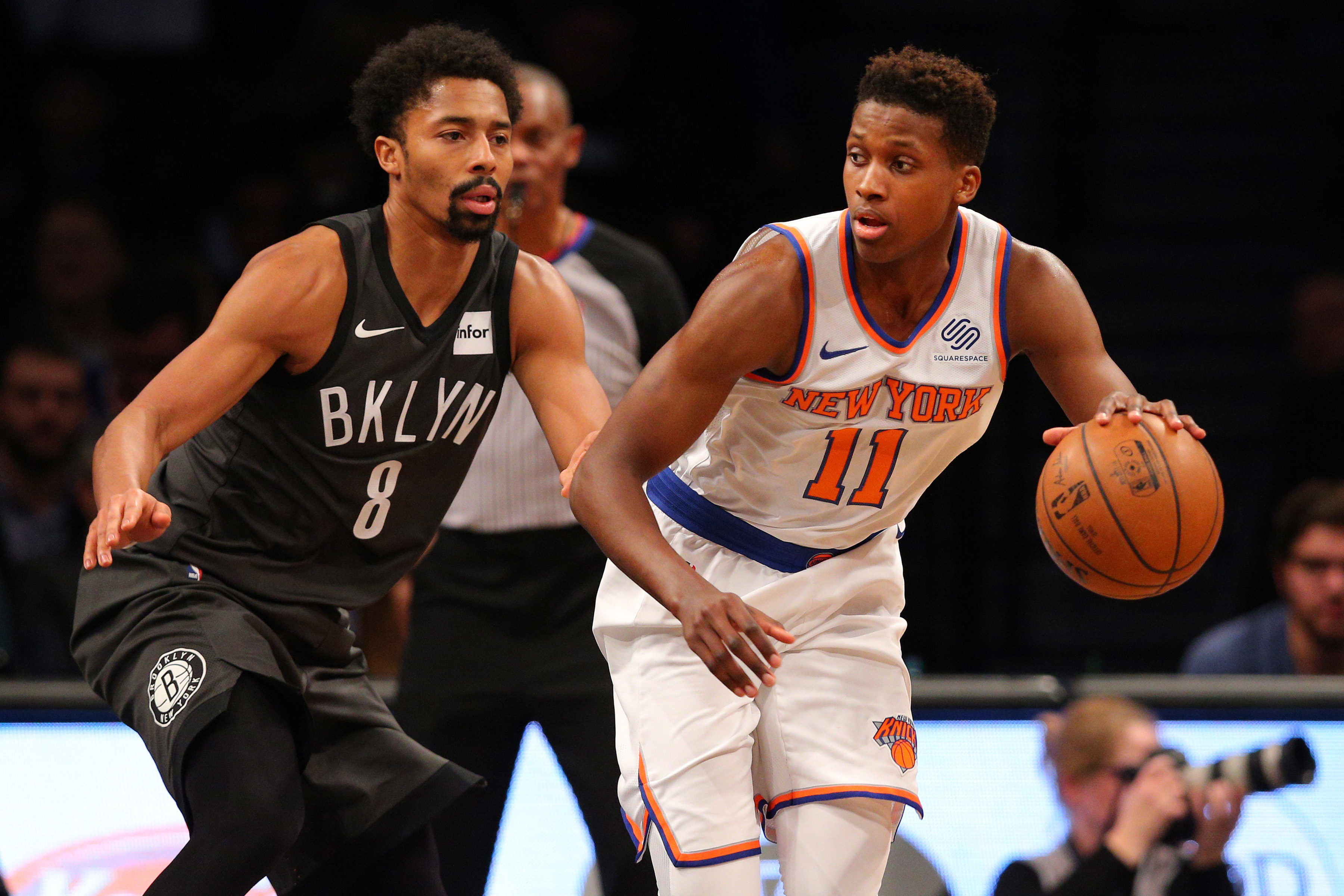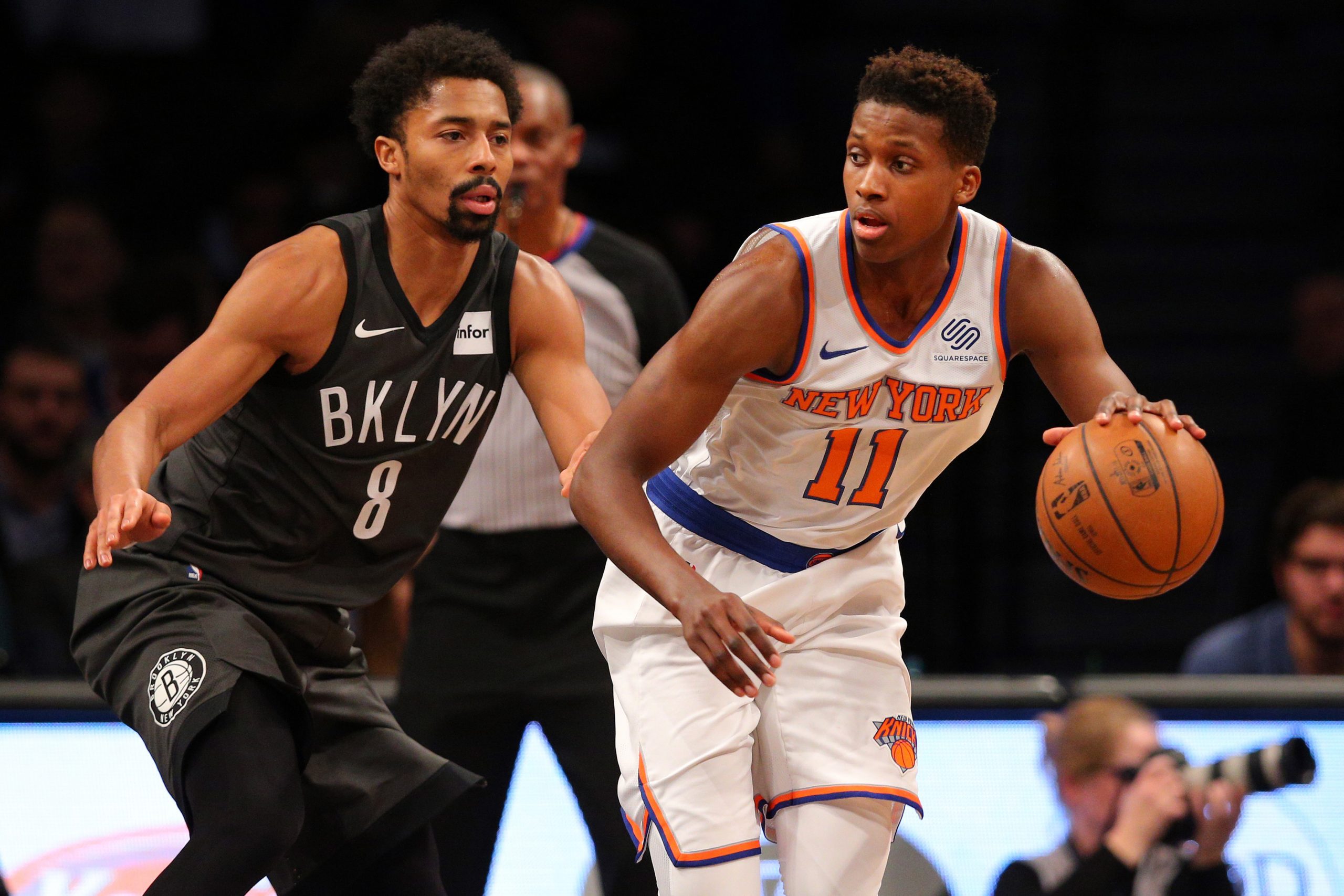
September has historically been a month with minimal transactions as teams prepare for training camp. Usually, there are very minor deals that are mostly meant to round out the depth of a given roster. Blockbuster deals happen during summer months of June, July and August.
However, just like last year, the league is bracing for a major September deal because of a trade request from a marquee name. Last year, Carmelo Anthony waived his no-trade clause to facilitate a deal to join the Oklahoma City Thunder. Now, Jimmy Butler is looking to pull off a similar coup by forcing a deal to a franchise of his choice.
What separates Butler’s situation from Anthony’s is the fact that unlike Melo, Butler does not have a no-trade clause in his contract. Butler is eligible to be traded to any of the 29 other teams, whereas Melo had the power to veto any trade.
This makes moving Butler easier. However, Butler does hold leverage in the situation because he ultimately will be in control of what franchise he signs a likely max-deal for.
That puts not only Butler in control of his fate, but it also means that the teams on his wish-list don’t have to give up a slew of assets to acquire him. That should be good news for New York City’s two professional basketball franchises. The Knicks and Nets are two of the three teams (along with the LA Clippers) on Butler’s list.
However, fans may be suffering from PTSD thinking about what it might take to reel in an All-Star. Both teams have given up too much in deals to acquire top talent in the past. The Knicks famously overbid on Carmelo Anthony in 2011 just months before he was set to be a free agent. The Nets, meanwhile, are still recovering from trading away several would-be lottery picks for aging veterans Paul Pierce and Kevin Garnett.
For the Knicks, this is a very familiar situation. Butler is an unrestricted free agent in 2019. The team has avenues to open up the cap room necessary to sign him after this season. They are likely better off avoiding the same mistake they made in February 2011 when they gave up valuable assets for Anthony, who would have likely signed in the off-season anyway (Anthony wanted a new deal with his team before the uncertainty surrounding the 2011 lockout, but regardless the Knicks panicked when they had all of the leverage).
The Knicks do have the right combination of veterans who can help Minnesota win now, as well as prospects and picks to help them in the long-term in case the team drops out of playoff contention from Butler’s absence. Tim Hardaway, Courtney Lee and Lance Thomas are all serviceable vets whose salaries would be easier to aggregate in order to match Butler’s $18 million cap hit. Frank Ntilikina would likely be involved in any potential deal with the team having Trey Burke and Emmanuel Mudiay at point guard as well.
If Butler truly wants to play for the Knicks, however, the team would be better off keeping its young core in tact and simply add him next off-season. Knicks general manager Steve Mills has preached patience during this rebuild and wants the team to finally refrain from trading picks for quick-fixes. If he is a man of his word, he will avoid getting into a bidding war for Butler.
Nets general manager Sean Marks has similarly preached patience during Brooklyn’s rebuild, which is now entering year three. Where Brooklyn differs from the Knicks is the team has the collective talent to make the final leap into the playoffs this season. After increasing their win total by eight from 2016-17 to 2017-18, the team stands to push its win totals into the 35-37 win range. That may just be enough for the Nets to snag a low playoff seed in a depleted Eastern Conference.
Acquiring Butler would almost certainly propel them into the playoffs. Trading assets for long-term deals (Butler would likely secure a max extension upon being traded) is not Marks’ M.O. He has instead focused on acquiring assets and building the Nets through organic growth.
A Brooklyn trade involving one or more of D’Angelo Russell, Spencer Dinwiddie, Caris LeVert and Rondae Hollis-Jefferson would be unfathomable given Marks and Kenny Atkinson’s dedication to helping their youth grow and learn within the system. The team is better off seeing which of the quartet (all but LeVert are due for extensions next summer) are worth keeping around. Oh, and just like the Knicks, Brooklyn will be able to carve out at least one max contract slot.
The same question applies for both franchises: why give up assets for a guy you could potentially sign in the off-season? Butler’s intentions appear to be playing as a leader in a large market. Roll the dice next off-season after seeing what young keepers you have that can excel beside an All-Star like Butler.
If you don’t learn from history, you’re doomed to repeat it. Both of these teams should be wary of what has happened when they have been put in this position.
Add The Sports Daily to your Google News Feed!
